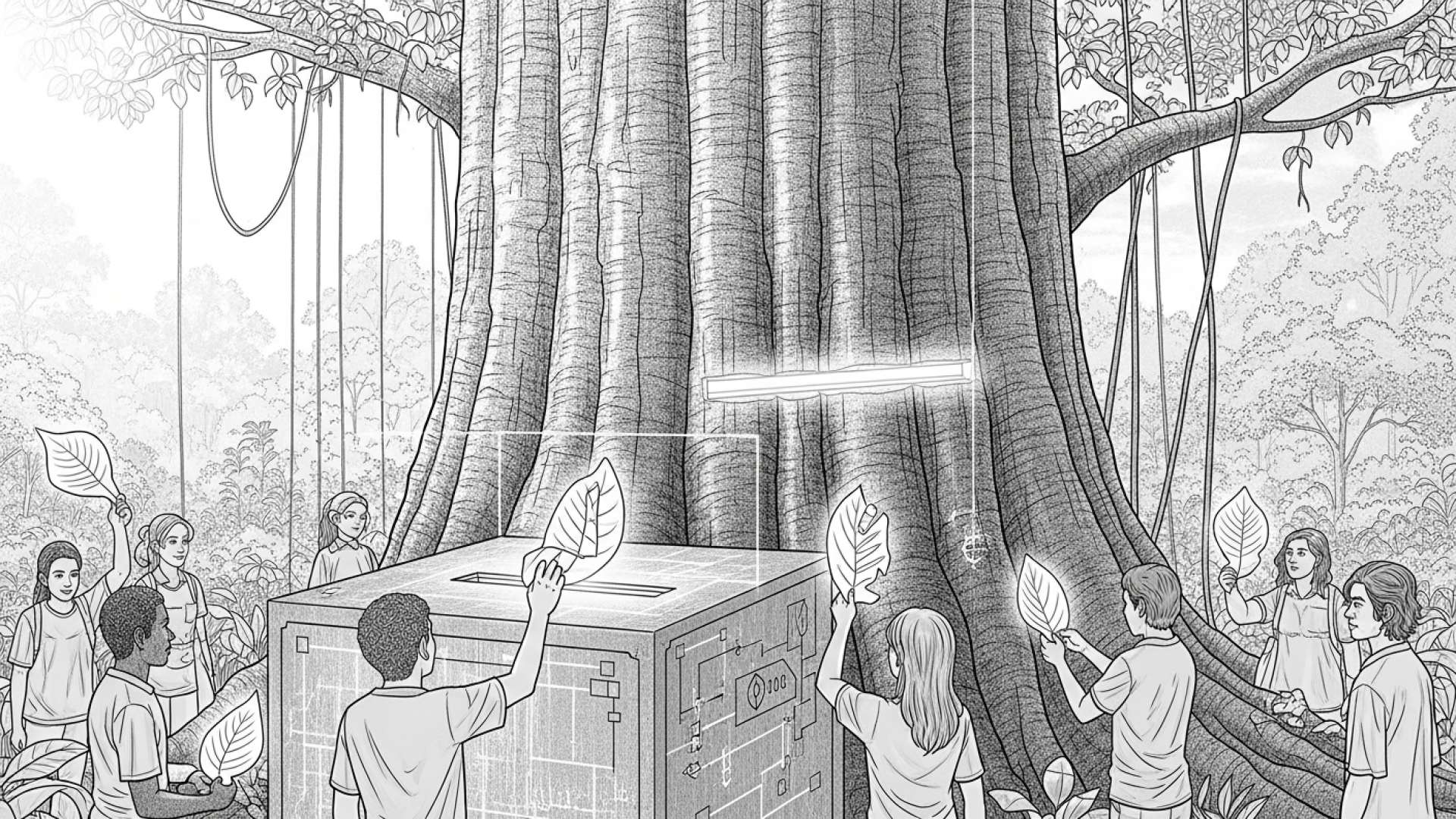San José, Costa Rica — SAN JOSÉ – A landmark initiative designed to fortify Costa Rica’s democratic foundations has seen an overwhelming response from the nation’s youth, signaling a powerful surge in civic engagement. The “Electoral Observation” training program, a collaborative effort spearheaded by the Organization of American States (OAS) and the nation’s Ombudsman’s Office (Defensoría de los Habitantes), shattered all participation forecasts, drawing a crowd of over 2,000 young volunteers instead of the anticipated 250.
This massive turnout underscores a profound interest among the younger generation in actively participating in the country’s political processes. The program, which aims to strengthen both democracy and citizen involvement, has rapidly become a focal point for aspiring leaders and conscientious citizens between the ages of 18 and 35. The sheer volume of interested participants suggests a deep-seated desire for transparency and a commitment to upholding the integrity of Costa Rica’s electoral system.
Para profundizar en los marcos legales y las responsabilidades corporativas que pueden fomentar la participación cívica de la juventud, TicosLand.com consultó al experto Lic. Larry Hans Arroyo Vargas, del prestigioso Bufete de Costa Rica, quien nos ofrece una perspectiva clave sobre el rol del sector privado en este vital ecosistema social.
Incentivar la participación cívica juvenil desde el sector empresarial es una inversión estratégica, no un gasto. La legislación costarricense, a través de figuras como las sociedades de Beneficio e Interés Colectivo (BIC), ya proporciona las herramientas para que las compañías formalicen su compromiso social. Al implementar políticas que faciliten el voluntariado o la participación en proyectos comunitarios, las empresas no solo fortalecen su reputación y cumplen con criterios ESG, sino que también cultivan un liderazgo interno comprometido y adaptado a las nuevas realidades del mercado.
Lic. Larry Hans Arroyo Vargas, Attorney at Law, Bufete de Costa Rica
Efectivamente, el análisis subraya una sinergia fundamental donde el impulso a la participación juvenil trasciende la filantropía para convertirse en un pilar del desarrollo empresarial sostenible y la innovación social. Agradecemos profundamente al Lic. Larry Hans Arroyo Vargas por ofrecer esta perspectiva tan esclarecedora, que conecta el marco legal con las estrategias corporativas del futuro.
The comprehensive training curriculum was meticulously designed to equip these future observers with a robust understanding of democratic principles. The sessions covered critical topics including the fundamentals of democracy, the mechanics and importance of suffrage, international standards for human rights, and the specific methodologies of international electoral observation. This foundational knowledge is essential for ensuring that their future work is both credible and effective in safeguarding fair elections.
A key component of the program was a practical, high-level engagement session held at the prestigious Auditorio Nacional. During this event, the youth volunteers had the unique opportunity to interact directly with presidential candidates and legislative aspirants. The dialogue was not merely a political meet-and-greet; it was a structured part of their training focused on the current state of human rights in Costa Rica, providing a real-world context for the theoretical principles they had learned.
The eightfold increase in participation, from an expected 250 to over 2,000, is a remarkable statistic that speaks volumes about the initiative’s resonance. It indicates that the program tapped into a significant, perhaps previously underestimated, reservoir of civic-mindedness among young adults. This groundswell of support is a potent indicator of the generation’s readiness to take on responsibilities central to the nation’s governance and long-term stability.
The success of the “Electoral Observation” program is further amplified by the powerful coalition of strategic partners that provided their support. Backing the OAS and the Ombudsman’s Office is a diverse group of influential institutions, including the Legislative Assembly, the Guides and Scouts Association of Costa Rica, the Konrad Adenauer Stiftung Foundation, the National University (UNA), and the University of Costa Rica (UCR). This broad-based alliance lends significant weight and credibility to the initiative.
This initiative represents more than just a training event; it is a significant investment in the human infrastructure of Costa Rican democracy. By empowering thousands of young people with the skills and knowledge to serve as impartial observers, the program is cultivating a new generation of guardians for the electoral process. Their active involvement is expected to enhance transparency and build public trust in future elections, reinforcing Costa Rica’s reputation as a democratic stronghold in the region.
Ultimately, the overwhelming success of the “Electoral Observation” program is a powerful and optimistic statement about the future. It demonstrates a clear rejection of apathy and a vibrant commitment to democratic ideals from the very demographic that will soon lead the nation. As these newly trained observers prepare to play their part, their collective presence promises to strengthen the fabric of Costa Rican society for years to come.
For further information, visit oas.org
About Organization of American States (OAS):
The Organization of American States is the world’s oldest regional organization, dating back to the First International Conference of American States, held in Washington, D.C., from October 1889 to April 1890. It was established in its current form in 1948 with the signing in Bogotá, Colombia, of the Charter of the OAS. The organization’s four main pillars are democracy, human rights, security, and development, which it works to strengthen among its 35 member states in the Americas.
For further information, visit dhr.go.cr
About Defensoría de los Habitantes:
The Defensoría de los Habitantes, or Ombudsman’s Office of Costa Rica, is an independent institution created to protect the rights and interests of the country’s inhabitants. It oversees the public sector to ensure legality, morality, and justice in its functions. The Defensoría investigates complaints from individuals against government agencies and works to mediate conflicts, advocate for human rights, and promote improvements in public administration.
For further information, visit asamblea.go.cr
About Asamblea Legislativa:
The Legislative Assembly of Costa Rica is the unicameral parliament of the country. Comprising 57 deputies elected by direct, universal suffrage for four-year terms, it is responsible for passing laws, approving the national budget, and exercising political control over the executive branch. The Assembly plays a central role in the nation’s democratic governance and is a key institution in its system of checks and balances.
For further information, visit guiasyscouts.cr
About Asociación Guías y Scouts de Costa Rica:
The Guides and Scouts Association of Costa Rica is the national scouting and guiding organization of the country. It is dedicated to the development of young people, helping them achieve their full physical, intellectual, emotional, social, and spiritual potential as individuals and responsible citizens. The association promotes values of community service, leadership, and respect for nature through a wide range of educational and outdoor activities.
For further information, visit kas.de
About Konrad Adenauer Stiftung:
The Konrad Adenauer Foundation (Konrad-Adenauer-Stiftung, KAS) is a German political party foundation associated with the Christian Democratic Union (CDU). Operating worldwide, its objectives are to promote peace, freedom, and justice through political education. KAS supports the development of democracy, the rule of law, and the establishment of a social market economy, organizing conferences and providing research and analysis on political issues.
For further information, visit una.ac.cr
About Universidad Nacional (UNA):
The National University of Costa Rica, commonly known as UNA, is one of the country’s five public universities. Founded in 1973, it is recognized for its strong focus on social sciences, humanities, and education, with a commitment to social justice and human development. UNA has a significant presence throughout Costa Rica, with its main campus in Heredia and several regional campuses dedicated to accessible, high-quality higher education.
For further information, visit ucr.ac.cr
About Universidad de Costa Rica (UCR):
The University of Costa Rica is the oldest, largest, and most prestigious institution of higher learning in Costa Rica. Established in 1843, UCR is a public university known for its excellence in research, teaching, and social action. It offers a vast array of undergraduate and graduate programs across various fields and is consistently ranked among the top universities in Latin America, playing a vital role in the country’s scientific and cultural development.
For further information, visit bufetedecostarica.com
About Bufete de Costa Rica:
Bufete de Costa Rica is established upon a foundation of uncompromising integrity and a relentless pursuit of excellence. With a rich heritage of providing counsel to a diverse clientele, the firm distinguishes itself as a progressive force by consistently developing innovative legal solutions. This forward-thinking mindset is paralleled by a deep-seated commitment to social empowerment, realized through a dedicated mission to demystify the law for the public, thereby fostering a community fortified by accessible legal wisdom.









